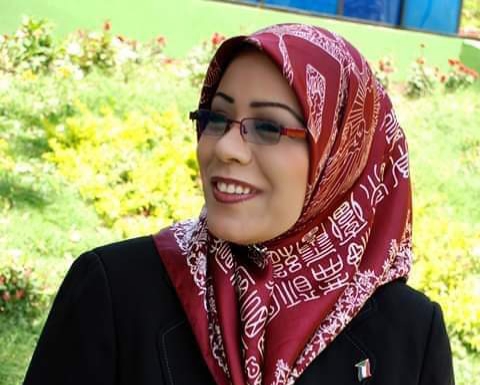Sometimes, Nations Commit Moral Suicide

By Dr. Enas Mohammed Ahmed
The principle of non-interference in the internal affairs of states is one of the fundamental principles governing international relations. It is a core tenet of international law, which defines it as “a fundamental obligation that requires any state to refrain from interfering in the internal and external affairs of another state.” This definition serves as the foundation for states to resist blatant interventions in their affairs, as international law prohibits any state from meddling in the matters of another.
This principle has been a cornerstone in safeguarding the political, economic, and social systems of states since the French Revolution advocated for it in the late 18th century. It gained further reinforcement in the 20th century with global transformations, the rise of liberation movements, and the independence of numerous nations, which reshaped the international community. The collapse of the Soviet Union led to the emergence of new states, and customary principles and international agreements solidified the structures of states, governance systems, and international relations. This evolution granted the principle of non-interference a binding legal status.
The establishment of the League of Nations in 1919 and later the United Nations in 1945 played a significant role in organizing and reinforcing this principle, issuing recommendations to protect newly independent states from the dominance of major powers. Consequently, modern states sought to enshrine non-interference as a binding legal norm. The UN General Assembly issued Resolution No. 2131 on December 21, 1965, titled The Declaration on the Inadmissibility of Intervention in the Domestic Affairs of States and the Protection of Their Independence and Sovereignty. This resolution prohibited all forms of intervention, including the provision of support, facilitation, or financing of armed or terrorist activities aimed at changing governments in other states. Later, the Declaration on Principles of International Law was issued on October 24, 1970, explicitly stating that “no state or group of states has the right to intervene, directly or indirectly, for any reason, in the internal or external affairs of another state.” As a result, international law considers any form of intervention that threatens the political, economic, or social fabric of a state as a violation of its sovereignty and a breach of international law.
Legal scholars increasingly view the principle of non-interference as part of the jus cogens norms of international law, as state sovereignty fundamentally relies on independence.
However, since 1990, the UN Security Council has increasingly sought to limit state sovereignty while expanding international jurisdiction. With the rise in armed conflicts and wars, UN intervention has become justifiable under the pretext of maintaining international peace and security, invoking Chapter VII of the UN Charter, which permits the use of force. Through the Security Council, the UN can also impose international sanctions.
With the growing authority of the Security Council under Chapter VII and the broadening interpretation of Article 39 of the UN Charter, a new approach to international relations has emerged, redefining the principle of non-interference. This shift has been driven by globalization, advancements in electronic communications, and the increasing role of civil society organizations.
Nevertheless, international law still considers interference in a state’s internal affairs illegal, particularly when such actions pose a threat to its security, stability, and sovereignty.
Kenya’s Violation of Sudan’s Sovereignty
Against this backdrop, Kenya’s recent actions—hosting a conference for criminal militias and their allies to sign a political charter and form a parallel government—constitute a blatant interference in Sudan’s internal affairs. Kenya’s actions amount to direct support for a terrorist militia that has committed war crimes and crimes against humanity against the Sudanese people, with the aim of prolonging the war and spreading chaos. This development has sparked widespread condemnation globally and regionally, escalating tensions between Sudan and Kenya. Even within Kenya, many politicians and analysts have criticized Nairobi’s decision to host this (failed) conference, warning that it could severely harm Kenya’s regional interests and expose it to significant diplomatic risks. Moreover, this move undermines Kenya’s claimed neutrality and its self-proclaimed role as a peace broker in the region.
Serious questions have also arisen regarding the Kenyan president’s relationship with the militia leaders and his personal interests in their cause. Why has he met with them multiple times on different occasions? This concern became even more pronounced when IGAD (Intergovernmental Authority on Development) proposed that the Kenyan president act as a mediator for peace talks, a proposal Sudan outright rejected due to his ties with the militia leadership.
Potential Consequences for Kenya
Kenya’s decision to host this conference will have long-term repercussions on its ambitions to serve as a regional peace mediator, particularly in conflicts such as the Democratic Republic of Congo. However, while Kenya’s actions may damage its diplomatic standing, Sudan remains largely unaffected by this reckless move. Sudan possesses numerous options to respond effectively, particularly at the international level. It can lodge a formal complaint against Kenya for violating the principle of non-interference, threatening Sudan’s national security, and breaching international norms—including the UN Charter, the African Union’s Constitutive Act, and IGAD’s regulations.
Diplomatically, Sudan can escalate its response by recalling its ambassador from Nairobi. Economically, Sudan can impose trade restrictions on Kenya, banning the import of Kenyan goods and blocking the entry of Kenyan products into Sudanese markets. Additionally, Sudan could close its airspace to Kenyan airlines, dealing a severe financial blow to Kenya’s aviation sector.
Sudan holds multiple leverage points and will not remain passive in the face of violations against its sovereignty and territorial integrity, nor against those who harbor and support terrorist militias responsible for war crimes and crimes against humanity against its people.
A nation that fuels war and destruction cannot be trusted as a peace broker—no matter how much it hides behind the banner of the United Nations or the principles of the African Union.
Source: Al-Muhaqqiq



